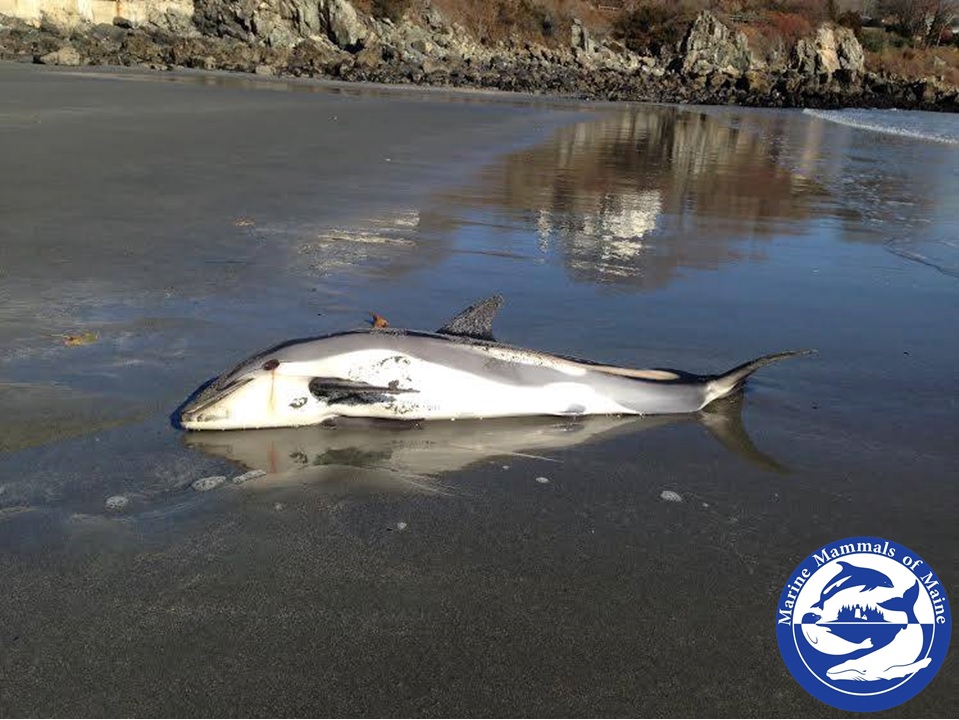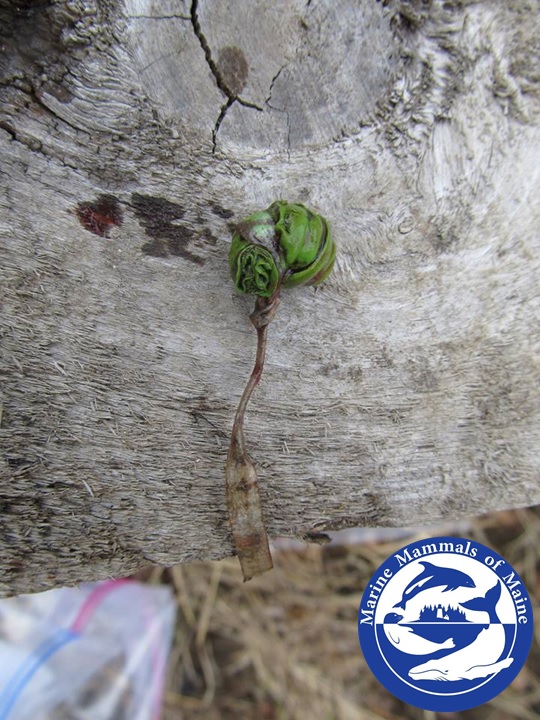On November 15th, 2014, MMoME received a report from a concerned citizen of a dolphin on Short Sands Beach in York, ME. Live-stranded cetaceans (a porpoise, dolphin or whale) are a much more serious event compared to live-stranded pinnipeds (seals). Unlike seals, cetaceans cannot live out of water, even temporarily, and when they end up on beaches, it is a life-threatening situation. Subsequently, a call of this nature immediately warrants a quick response from our team.
When the response team arrived on the beach, a large group of people were standing around a small Atlantic White Sided Dolphin. Sadly, she was already deceased, and had been since before being reported. Though it was not a live cetacean that MMoME could help, the dolphin presented a rare opportunity to learn much about this species, and the possibility of helping more like her in the future with new knowledge. She was brought back to MMoME’s facility to conduct an in-depth investigation for sample collection during a necropsy (autopsy for animals).
What was found during the investigation is now helping marine mammals in Maine, and beyond, every day. A green balloon was lodged in her stomach and intestines, preventing her from eating and digesting food. Other bits of plastic were also found and documented.
This young dolphin’s story will be told by MMoME for years to come in an effort to help other cetaceans, just like her. She, and the many other cases like hers we encounter, fuels MMoME’s daily commitment to reduce marine debris, and educate about the impacts of plastic, balloons, and other improperly discarded waste on wildlife. Her story and fate have inspired many school groups, youth programs, and ocean-loving stakeholders to put an end to ocean litter. Will you be her next advocate to help marine wildlife?



